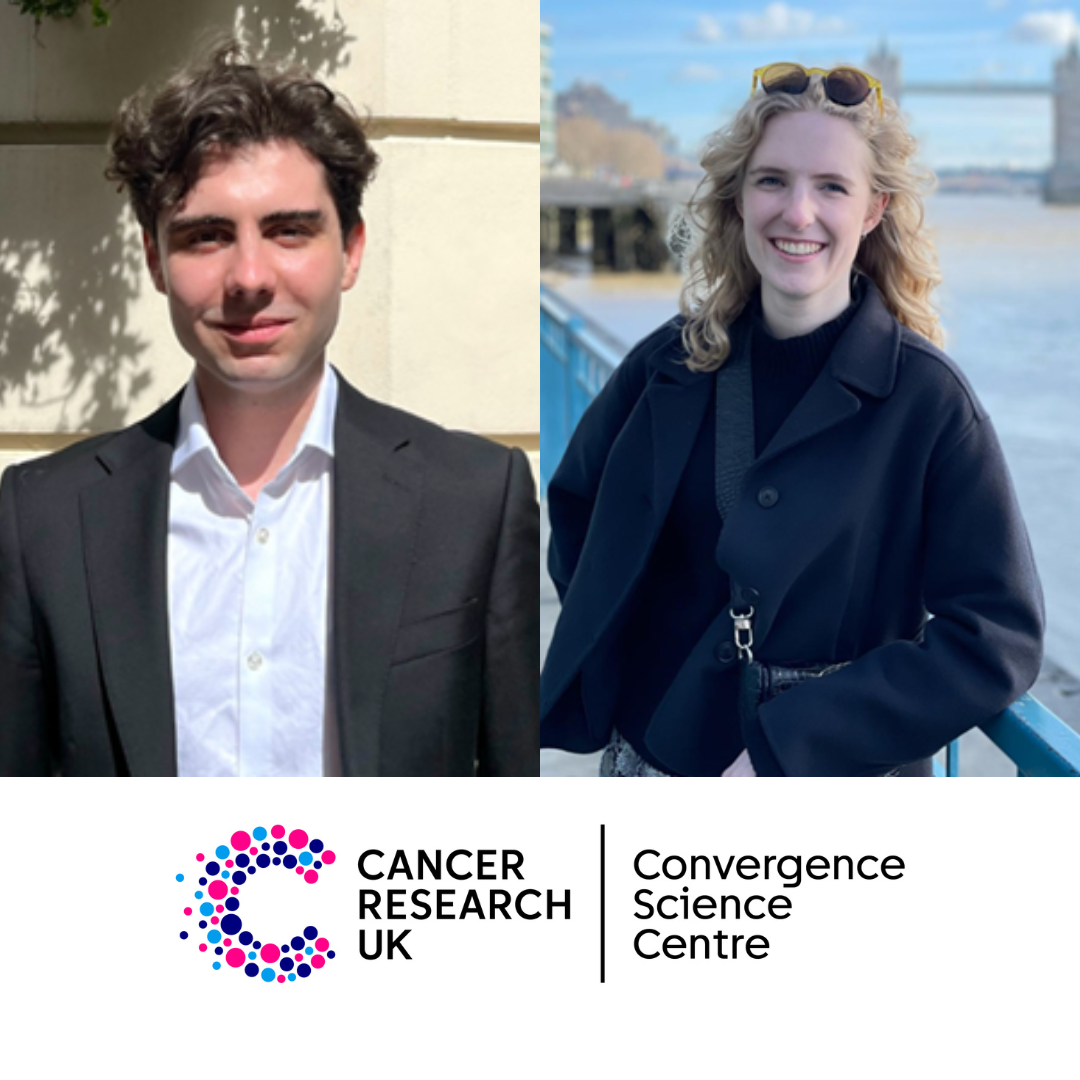

Our future leader seminar gives a platform to our PhD students to present their research, and share their experience of navigating between disciplines and finding their scientific identity as convergence researchers. Members from across Imperial and the ICR are invited to join us online on Friday 28th February, 2-3pm.
This seminar will be hosted by Professor George Hanna, Head of the Surgery and Cancer, Imperial College London and there will be talks from:
Maxime Giot, a CRUK Convergence MBBS-Ph.D. student based in the Department of Surgery and Cancer and Hamlyn Centre for Robotic Surgery at Imperial College London. He is currently in his second year of Ph.D. under the joint supervision of Mr Christopher Peters and Prof. Daniel Elson. His research focuses on evaluating the use of diffuse reflectance spectroscopy, an optical sensing technique, as a resection margin assessment tool in upper GI cancer resection surgeries as well as introducing the technology to laparoscopic procedures.
Title of Talk: Light-Guided Precision: Advancing Upper GI Cancer Surgery with Diffuse Reflectance Spectroscopy.
Abstract:
Background: Accurate assessment of resection margins in surgical resection of upper gastrointestinal cancers is crucial to ensure patient survival and preventing recurrence. Indeed, positive resection margins – where cancer cells are found at the border of resection are associated with high risk of recurrence and poor survival. However, there are currently no technique that allows for intraoperative tissue differentiation in real-time. Diffuse reflectance spectroscopy (DRS) is a point-based optical sensing technique which can distinguish tissue types by analysing the absorbance and diffuse reflection of light in the tissue sampled. The aim of this study was to assess the diagnostic accuracy of DRS in differentiating tissue types in vivo.
Methods:Optical spectra were acquired intraoperatively from normal and suspected tumour, stomach and oesophagus tissue using a custom-built sterilisable DRS probe integrated with a tracking system. Spectra were correlated with histopathology analysis for ground truth labels. Three machine learning classifiers (XGBoost, RF and LGBM) were trained to classify spectra into normal vs. tumour. Classifier performance was evaluated for: sensitivity, specificity, accuracy and AUC of the ROC curve.
Results: A total of 9,954 absorption spectra were collected from 32 patients. There were 6,838 spectra in the stomach dataset and 3,116 spectra in the oesophagus dataset. For stomach tissue, XGBoost performed best with 77.36% sensitivity, 95.14% specificity, 90.58% accuracy, and an AUC of 0.96. For oesophageal tissue, LGBM performed best with 85.69% sensitivity, 81.83% specificity, 83.81% accuracy, and an AUC of 0.92.
Conclusion: DRS demonstrated high diagnostic accuracy in differentiating normal and tumour oesophageal and gastric tissues in vivo. These findings highlight its translational potential to improve surgical precision, reduce positive margins, and enhance outcomes in cancer patients.
Maja Bronowska, a non-clinical PhD student based in Department of Surgery and Cancer. She completed her BSc in Cancer Biomedicine at University College Lonodon in years 2019-2022 and MRes in Cancer Biology at Imperial College London in 2023, working in Prof Julian Downward Laboratory and Dr Ilaria Malanchi Laboratory. In 2024, Maja started her PhD in Dr Olivier Pardo’s group, working on protein-protein interaction and exploring RSK1 and RSK4 isoform-specific signalling in cancer.
Title: Resolving isoform-specific signalling of RSK1 and RSK4 in lung and breast cancers
Abstract: RSKs (p90 ribosomal S6 kinases) belong to a family of serine/threonine kinases expressed in humans, comprising four isoforms (RSK1-4). They are crucial in various biological processes, from development to disease pathogenesis. Notably, RSK1 and RSK4 play significant roles in different cancers. Despite their high homology, emerging evidence suggests they have distinctive functions in health and disease. However, explaining these divergences is complicated by the fact that the downstream signalling mediators of RSKs remain largely unknown. We hypothesize that RSK1 and RSK4 have different substrates and interactors across various tissue types and aim to use different approaches to identify these in lung and breast cancer models using mass spectrometry-based proteomics, RNA sequencing, and RSK mutant constructs. We will then integrate this multi-omics data using a graph-based machine learning model to identify potential new therapeutic strategies for these diseases.
Please email icr-imperial-convergence.centre@imperial.ac.uk to receive joining details.